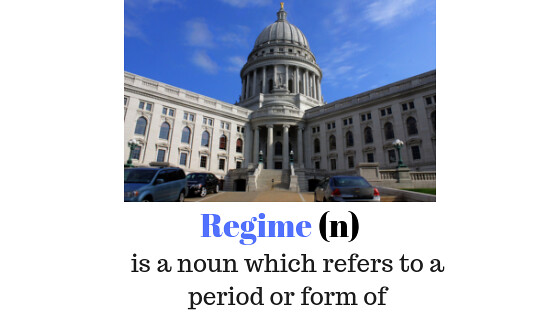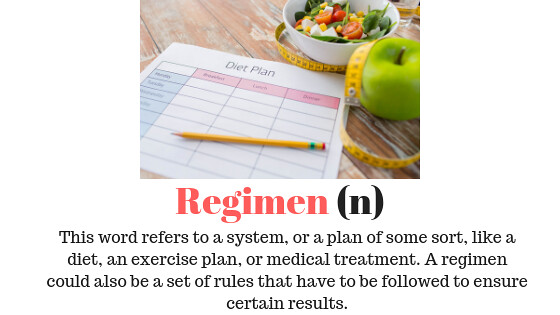Get in Formation: Differentiating “Regime”, “Regimen”, and “Regiment”
Posted on Mar 27, 2019
So many words in the English language end up sounding and looking alike, despite how far apart the meanings could be. This is often because the English language is pretty much made up of words from other languages, plus years and years of language evolution. More often than not, however, words that are spelled alike have similar root words or a usage similarity that can be traced historically.

Such is the case for the words “regime”, “regimen”, and “regiment”. These three words are pretty confusing and are interchanged from time to time. This happens not only because they are spelled and pronounced similarly, but historically, two of these three words were actually once synonyms.
Before we delve into a bit of etymology, or word history, let us first clearly define each word. Examples of how each word is used is also provided.

We'll start with “regime”. Regime is a noun which refers to a period or form of government. Regime has a negative connotation attached to it, so it’s a word often used to described dictatorships and other difficult periods in history.
Examples:
Castro is an important historical figure in the study of the military regime in Latin America.
Revolutions begin when citizens want to overthrow an existing regime.

Our second word, regimen, is also a noun. This word refers to a system, or a plan of some sort, like a diet, an exercise plan, or medical treatment. A regimen could also be a set of rules that have to be followed to ensure certain results.
Examples:
Part of the fitness plan includes a strict sugar-free diet regimen.
The nurse said that your daily regimen will include antibiotics and painkillers.

Regiment is also a noun, referring to any group of people. The word is used most often in the context of the military. Regiment also functions as a verb, meaning “to organize a group of people in a systematic or oppressive manner”.
Examples:
The Russian military was composed of hundreds of regiments of soldiers.
Part of Citizen Army Training is the regimenting of members.
Now that it’s clear, we go to why it’s easy to get all these words mixed up. “Regime”, “regimen”, and “regiment” all come from Latin roots regimen, which means “to rule”, and regere, which means “to direct or guide”.
The Latin regimen was first adopted into French, meaning a form of government or period of rule, and then shortened to “regime.” “Regime” was then adopted to English, its meaning intact. For a period of time, “regime” and “regimen” were considered synonyms. In the 15th century “regimen” was given a new meaning: a system, or plan often related to diet or exercise. This was published in many dictionaries and stuck as the permanent meaning of the word. Today, many would consider using “regimen” to mean “regime” as rare or even archaic. Regime retained its original meaning.
On the other hand, “regiment” is also said to be rooted in the Latin regimentum, which means “rule, direction”. “Regiment” made its way to English by way of French. Its French meaning, however, is closer to “regimen”: “government, rule”. When rules for the prefix “reg-“ were established (“reg-“ means “move in a straight line”, or even broader, “lead or rule”), people started using “regiment” in its verb sense. Later on, “regiment” came to mean “an organized group of people”.
Regime, regimen, and regiment. Three different words, same roots, decades of evolution. Hopefully, this guide will help you get your words in formation.
Sources:
- Reg | Etymonline
- Regiment | Etymonline
- Regimen| Etymonline
- Regime| Etymonline
- Regime, Regimen, Regiment| ThoughtCo
- Regime, Regimen | Grammarly
Disclaimer: Images are not ours. Credit to the owner.
About 1-Hour Proofreading
1-Hour Proofreading is a growing start-up offering fast and efficient editing services at a reasonable price with the assurance that the document is publication-ready the soonest you need it. Its team of highly competent professional editors is committed to helping those in need of quality editing services while facing tough deadlines.
Visit 1hourproofreading.com for more details.
Follow us:
Back to Grammary



